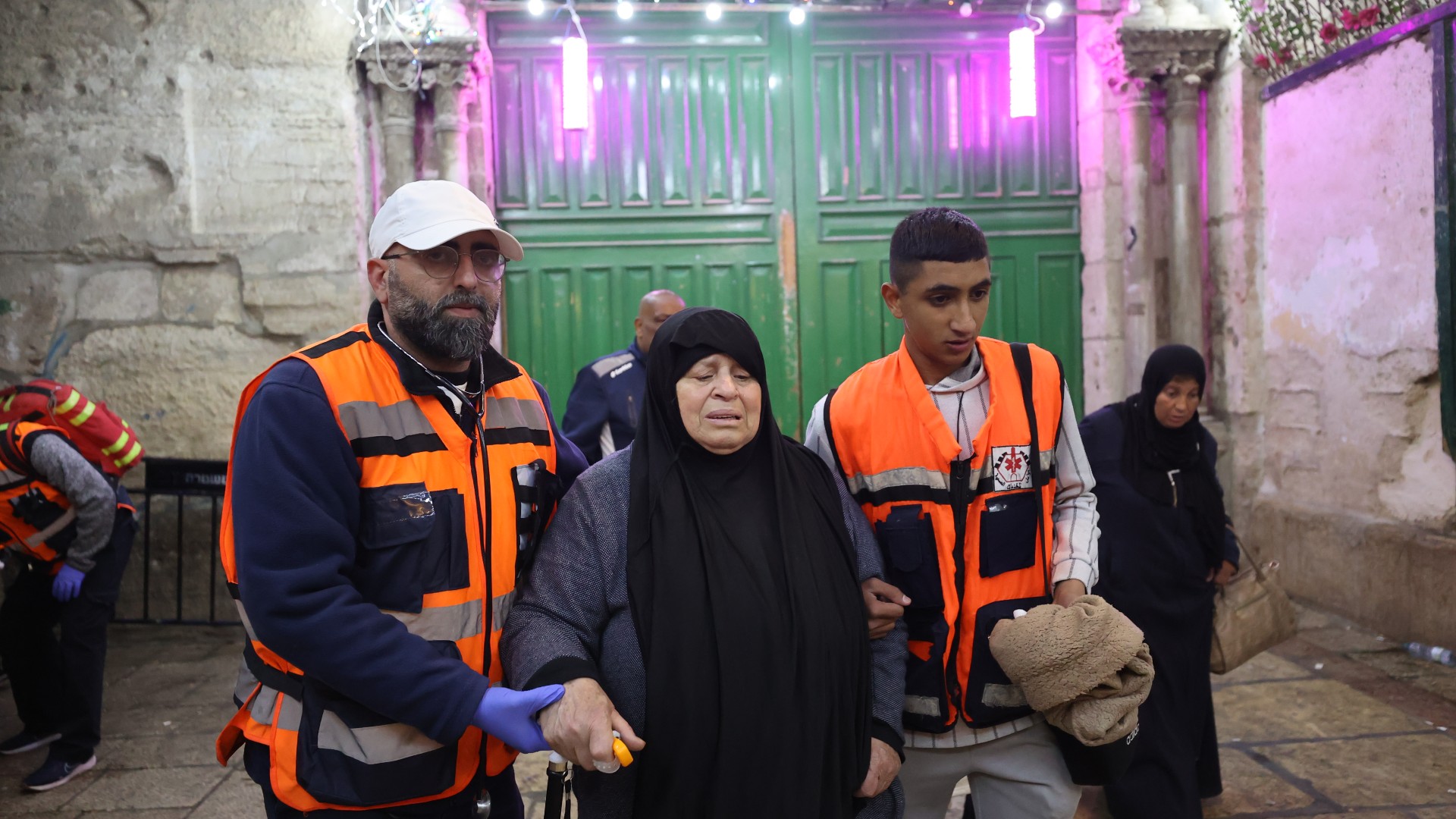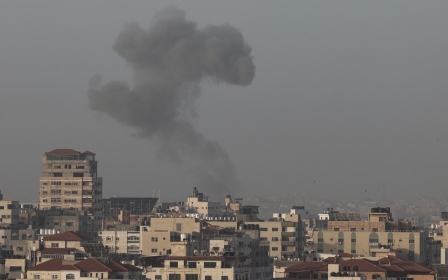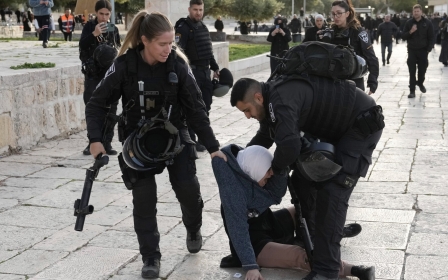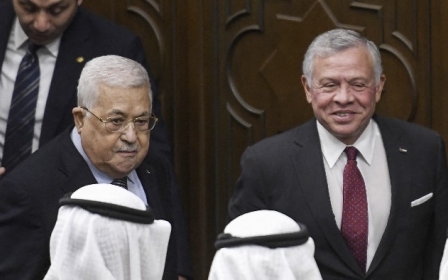Al-Aqsa Mosque raid: How a night of worship became a night of Israeli brutality
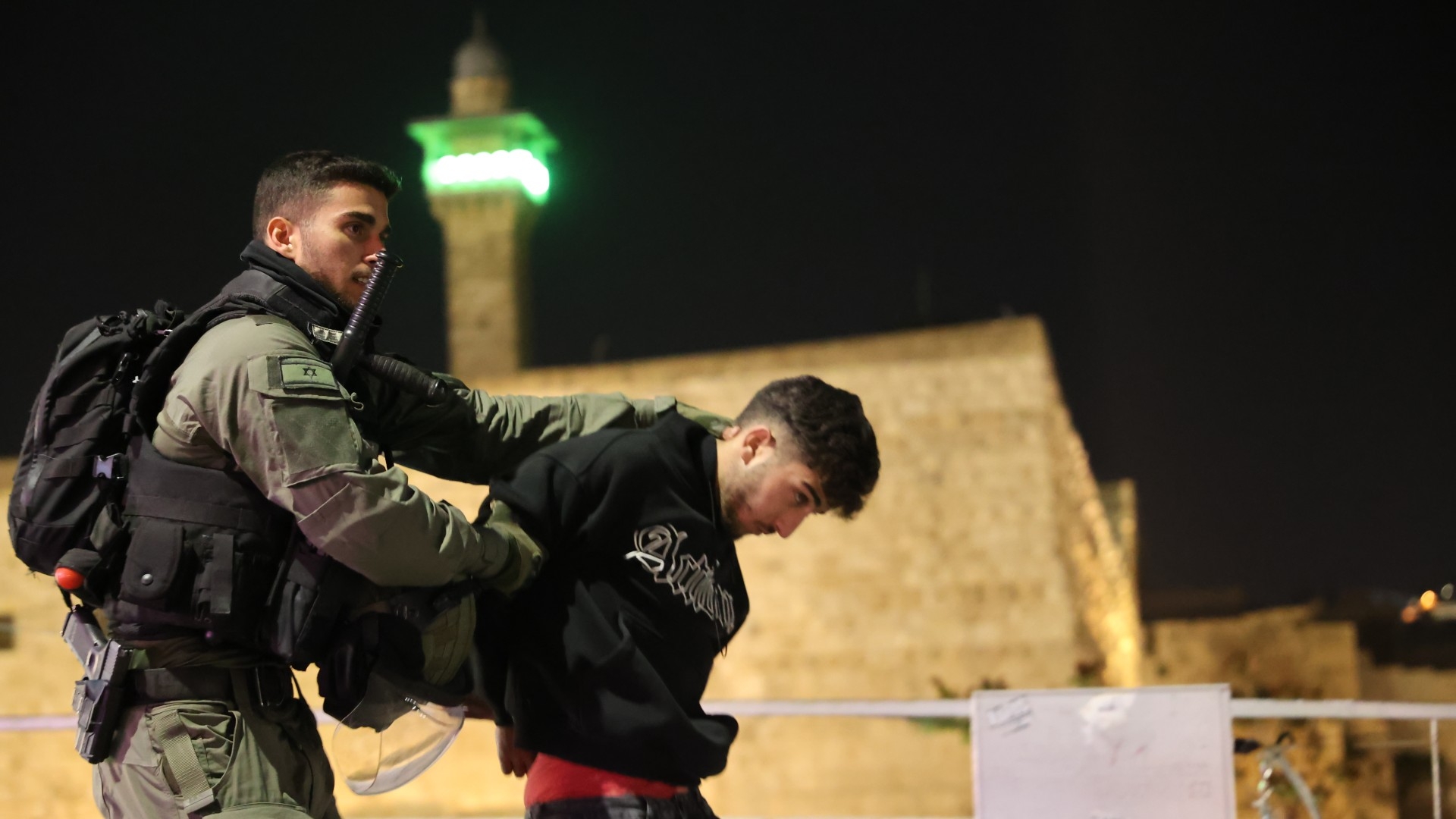
Footage of heavily armed Israeli soldiers smashing their batons and guns down on cowering Palestinian worshippers in Al-Aqsa Mosque’s Al-Qibli prayer hall during Ramadan sparked outrage worldwide on Wednesday morning.
The reality, said Abdullah Jaber, a teenager from Jerusalem who was assaulted in the prayer hall and detained by Israeli forces on Tuesday night, was much, much worse.
“They kept us on the ground, handcuffed, for a long time, and anyone who raised his head was hit with a gun,” Jaber told Middle East Eye.
“My leg hurt, so I told a soldier about it, but he hit me on my chest and cursed me.”
Speaking after his release, Jaber described the terrifying moment the Israelis forced their way into the holy site in occupied East Jerusalem, where Palestinians were practising the contemplative prayer of Itikaf.
New MEE newsletter: Jerusalem Dispatch
Sign up to get the latest insights and analysis on Israel-Palestine, alongside Turkey Unpacked and other MEE newsletters
Stun grenades and teargas were fired into the thousand-year-old building, before soldiers threw Palestinians to the ground, stamped on them, and bound their hands forcefully behind their backs.
Jaber said the beatings did not stop once they were removed from the prayer hall. The Israelis hit the detained Palestinians with batons as they led them out of the hall and crammed them into a space near the mosque. Around 400 Palestinians were detained on Tuesday night.
Even after they were taken to the police station, the assaults and insults continued, Jaber said. Now free, the teenager is nonetheless shaken and bruised after a night of worship became a night of brutality.
Many of the detainees were forced to sign papers banning them from Al-Aqsa Mosque for a week, as a condition of their release.
Mothers feared for their sons
For mothers of young men like Jaber who were caught up in the assault, Tuesday night was fraught with anxiety and tension.
Sanaa Al-Rajabi was in constant contact with her son Ammar as the Israelis stormed the mosque - until the line went dead. He’d been arrested and taken to an interrogation centre with scores of other worshippers.
“I was worried to death for my son. At first, the worshippers were in Al-Qibli prayer hall and refused to leave it; then the brutal assault began on them by dozens of Israeli police officers, using all forms of repression,” she told MEE.
'The last thing he told me was that the soldiers sprayed them with teargas inside the prayer hall and beat them with rifles and metal chairs'
– Sanaa Al-Rajabi, mother of a detained worshipper
“Sound bombs and teargas were fired at them while they were trapped inside the prayer hall, then the rubber bullets that hit many of them.”
Israeli forces began removing Palestinians from Al-Aqsa's courtyards at around 10pm. Earlier, tens of thousands had attended Taraweeh prayers, as is customary during Ramadan, and several people stayed behind to practise Itikaf.
Itikaf is a non-mandatory religious practice that is common in Ramadan, whereby worshippers stay inside mosques overnight to pray, reflect and recite the Quran.
While Israel has refused to allow Palestinians to perform Itikaf this year and cleared people from the mosque after Taraweeh prayers, it had not used such excessive violence before Tuesday's assault.
The Jewish holiday of Passover began on Wednesday, where Jewish Israelis are expected to gather at the Western Wall beside Al-Aqsa.
The Palestine Red Crescent Society and local media said dozens of Palestinians were injured in the crackdown. Medics were denied access to those hurt and one was assaulted outside the mosque.
While the Israeli violence escalated, cries for help rang out over Jerusalem from minarets. Palestinians gathered in protest across the occupied West Bank, the Gaza Strip and the Palestinian town of Umm al-Fahm in northern Israel. Rockets were fired from Gaza, prompting Israeli airstrikes on the besieged enclave.
As the situation deteriorated in the mosque, Rajabi and other Palestinians headed to Al-Aqsa, trying to protect their loved ones and the holy site itself, but they were met with stun grenades and batons at one of the mosque’s gates.
Rajabi hasn’t heard anything from Ammar since last night. He’s still believed to be in Israeli custody, but his mother was able to identify him in the violent footage from the mosque.
“The last thing he told me was that the soldiers sprayed them with teargas inside the prayer hall and beat them with rifles and metal chairs. Then they handcuffed them and took them outside,” she said.
On Wednesday morning, many of the detainees’ families gathered outside Jerusalem’s Atarot police station. Israeli police tried to barter with the relatives for their release, witnesses said.
Khalid Zabarqa, a lawyer representing some of the detained worshippers, told MEE that he expects most of the Palestinians to be released but some may be transferred elsewhere.
“They transferred them to this centre in buses and then numbered them,” he said, showing how the Palestinians were marked by pen on their shoulders. “This is something new.”
Middle East Eye delivers independent and unrivalled coverage and analysis of the Middle East, North Africa and beyond. To learn more about republishing this content and the associated fees, please fill out this form. More about MEE can be found here.


